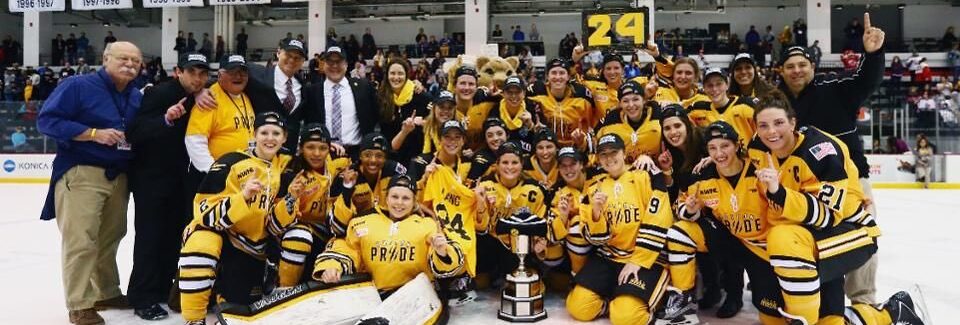By now, if you at all care about women’s hockey, you’ve seen the recent report from The Victory Press detailing life in the NWHL from former players. Predictably, the piece created a lot of debate on Twitter. To the surprise of no one, emotions were high in those debates.
If you have not read that piece yet, I’d recommend doing so right now. It’s an extremely eye-opening piece that looks into the struggles faced by those in the NWHL in previous seasons. It also explains why a number of players left the league and have joined the PWHPA.
Now, before I go any further allow me to say this. It is distinctly possible, in fact I’d say very likely, that the NWHL has improved conditions and will continue to do so over the coming years. From an outside eye, I’d even say it is apparent that the league is doing things to improve conditions in the league and to gain more exposure.
A few things stood out to me from both the piece and the ensuing reaction. The first thing, which I’ll focus on today, is a quote from a coach in the NWHL.
Here’s an excerpt from the above linked post that really caught my eye.
“But it’s not about the money, because I wasn’t even making enough for that pay to even remotely affect anything,” she said. “It was such a small number. It was just the principle of not putting your players first ― that was concerning.” According to two players, the Pride’s coach, Paul Mara, was not sympathetic to their issues with the arrangement. “It was very few of us that brought it up, just because I think people didn’t want to be known for complaining,” one player said. “We had a team meeting about it, and our coach said ― literally, direct quote ― NHL players wouldn’t complain about something like this, about having to pay for their own flights and their own travel. They would just want what was best for the team, unquote.”
That last quote is both dangerous and, quite frankly, false.
It’s extremely dangerous that women in the sport of hockey have been told, by their own coaches, that they should essentially be thankful for what they get. Mara, the coach in question, had a really successful NHL career that lasted from 1999-2011. He knows, or at least should, how NHL players think.
Saying that players would just want what was best for the team is both correct and incorrect. Sure, they all want to win, and we hear countless players say how they’ll sacrifice some of their stats or even take a slightly lesser salary for the good of the team.
Do you think a single NHL player would be willing to pay for his own travel over the course of an NHL season. Not a chance in hell. NHL players were so against a salary cap that it was part of the reason the 2004-05 NHL season never happened. Mara, under contract with the Phoenix Coyotes, was a part of the NHLPA during that time.
Money issues also limited the 2012-13 season to just 48 games.
NHL players, rightfully, have fought for better pay and work conditions via the NHLPA over the years. Saying that NHL players would pay for their own travel and not complain is just outrageous. There is no way around that. On the face, it looks like a person in a position of power is telling players with legit complaints to shut up and take what is given to them. It was a very bad look and it is a dangerous quote.
Most fans only see the NHL side of things, but the AHL and ECHL play a prominent role in the men’s professional game. The life of glamour seen in the NHL is not shared by those plying their trade in the minors. It’s a life on the road when you play in the AHL and ECHL. Even those conditions, however, are better than the ones portrayed in this article.
A number of players simply quit the game because of the less than ideal travel conditions they deal with at the ECHL and AHL levels. If you aren’t on an NHL contract, or a prospect of the parent club, it can easily be deemed not worth it.
“Honestly, with the travel conditions and schedule, it wasn’t worth playing anymore,” one unnamed former men’s player told me. “It takes a toll, and the pay isn’t worth the long hours on the road.”
When asked if he had to pay his way to games, said player laughed. “No way, that’s absurd. I wouldn’t have even bothered trying it out after college.”
Paul Mara was a good NHL player, has proven to be a good coach and by all accounts is loved by his team. It’s very possible that the quote from the article was a bad moment for a good guy. That happens. This piece isn’t meant to point him out and blast him. That’s not what this is about.
The quote cannot, however, be ignored. It’s indicative of a bigger issue in women’s hockey, one that goes beyond the NWHL or any one person. The indication that these women should just be happy with what they have is a slippery slope.
No matter the improvements the NWHL or PWHPA have made, both should be striving to do more. The players in both organizations should continue to voice concerns and push for improvements. That’s the only way things will continue to get better for those in the women’s game.

